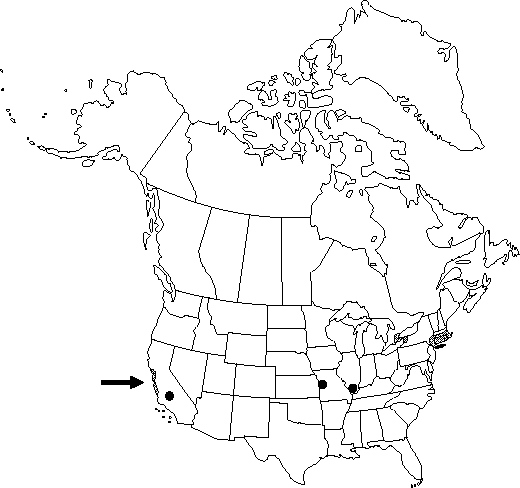Ulmus procera
Prodr. Stirp. Chap. Allerton, 391. 1796.
Trees, to 40 m; crowns open. Bark grayish brown, deeply ridged, flaking. Wood hard. Branches: old-growth branchlets with corky ridges; twigs reddish-brown, villous to scabrous, old-growth branchlets with corky ridges. Buds ovoid; scales dark-brown, sparsely pubescent, marginally pale-ciliate. Leaves: petiole 3-12 mm, villous to scabrous. Leaf-blade broadly lanceolate-elliptic to ovate, (3-) 7-10 × (3-) 4-6 (-10) cm, base strongly oblique, not covering petiole, margins doubly serrate, apex acute to acuminate; surfaces abaxially villous with woolly tufts in vein-axils, pale in contrast to adaxial surface, adaxially dark green, glabrous to sparsely scabrous, margins not ciliate. Inflorescences dense clusters of subsessile flowers borne on lateral shoots resembling short racemes, flowers and fruits not pendulous. Flowers: calyx green to reddish purple or tan, shallowly lobed, lobes 5-8, marginally villous; stamens 3-5 (-6); anthers dark-brown, globose; stigmas white, puberulous, persistent in fruit, slender lobes incurved. Samaras light-brown, darker brown to red in area covering seed, orbiculate, about as long as broad, 0.9-1.8 × 0.9-1.6 cm, broadly winged, glabrous except for pubescence along margin of apex, apex shallowly notched. Seeds thickened, not inflated. 2n = 28.
Phenology: Flowering early–late spring.
Habitat: Persisting, sometimes naturalizing locally where species has been planted
Elevation: 0-400 m
Distribution

Introduced; Ont., Calif., Conn., Ill., Mass., Mo., N.Y., R.I., native to Europe
Discussion
In the absence of carefully documented naturalized populations, the North American distribution of Ulmus procera is very poorly known. It is locally established in British Columbia, Arizona, Louisiana, Maryland, and Michigan. It has been reported from Georgia, North Carolina, Virginia, and West Virginia. Off-shoots from the root systems are often found close to planted trees, forming dense clones, especially in and around urban centers.
Some authors have combined Ulmus minor Miller and U. procera Salisbury. This treatment follows that of Tutin and colleagues (T. G. Tutin et al. 1964-1980, vol. 1, pp. 65-66), in which the species were regarded as separate. Reports of Ulmus minor Miller, in the strict sense, in North America are not confirmed. Hybrids of Ulmus procera and U. glabra are reported from New York (R. S. Mitchell 1988) and may be spreading. Both U. procera and U. glabra are involved in the parentage of Dutch elm, Ulmus ×hollandica Pallas.
Selected References
None.